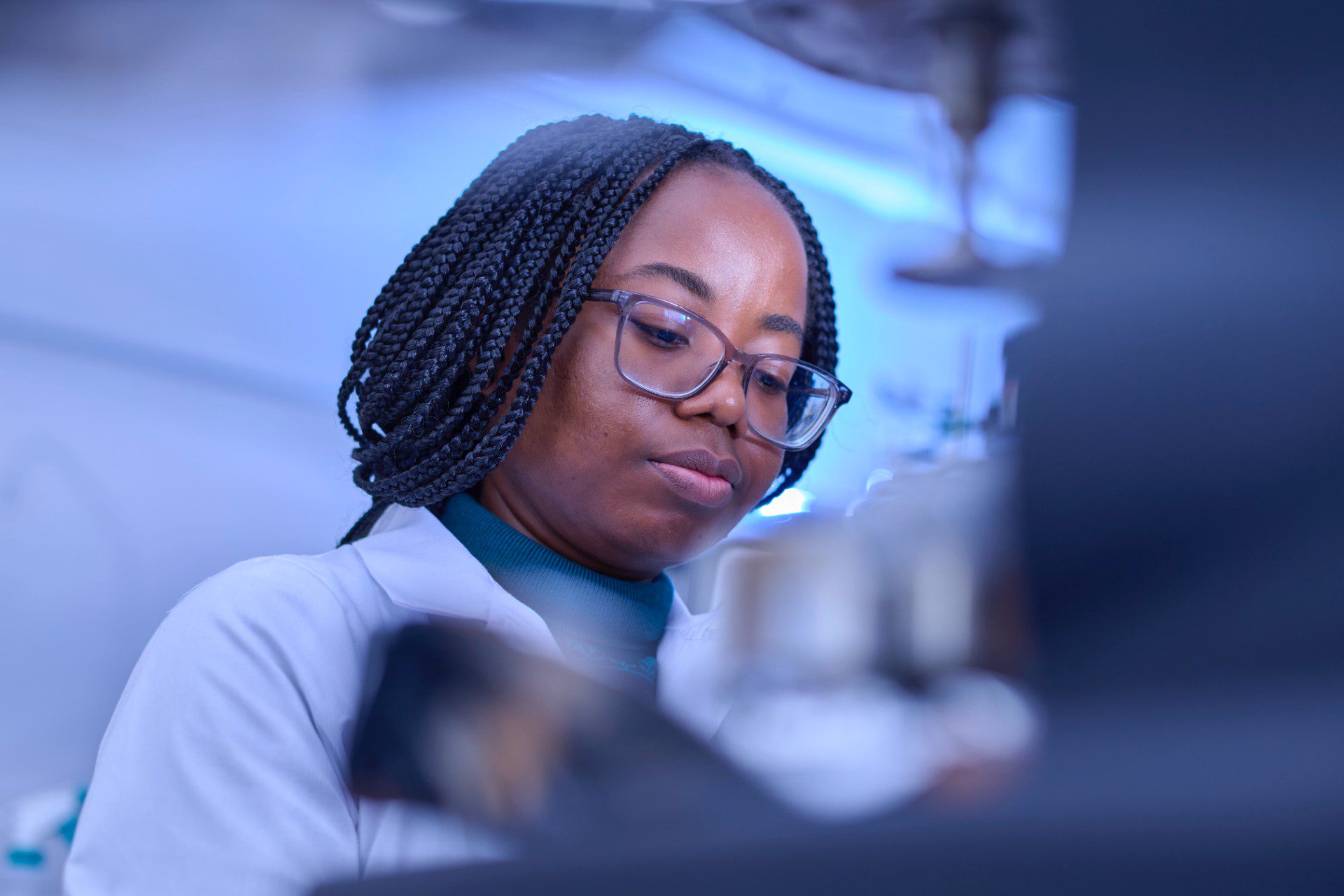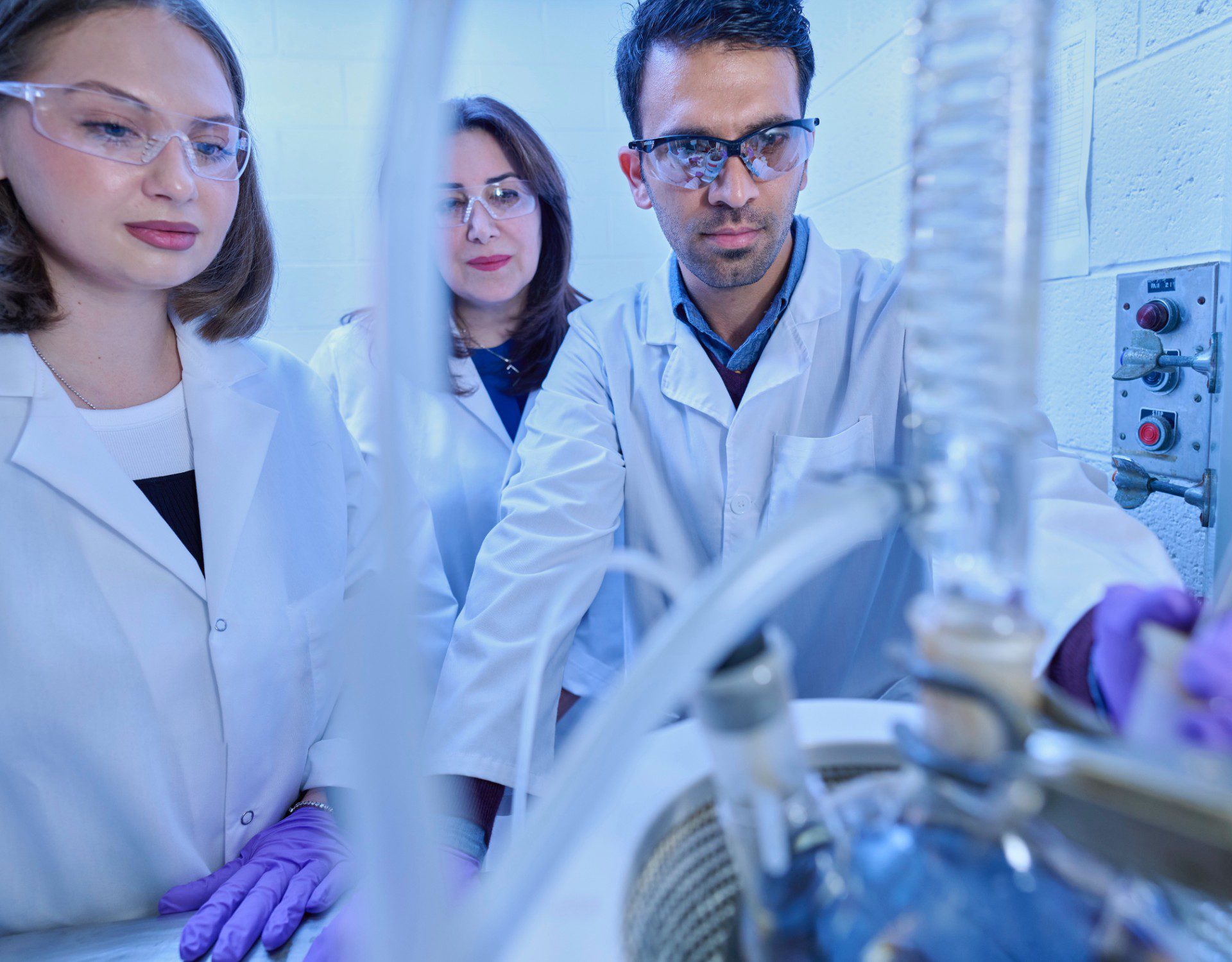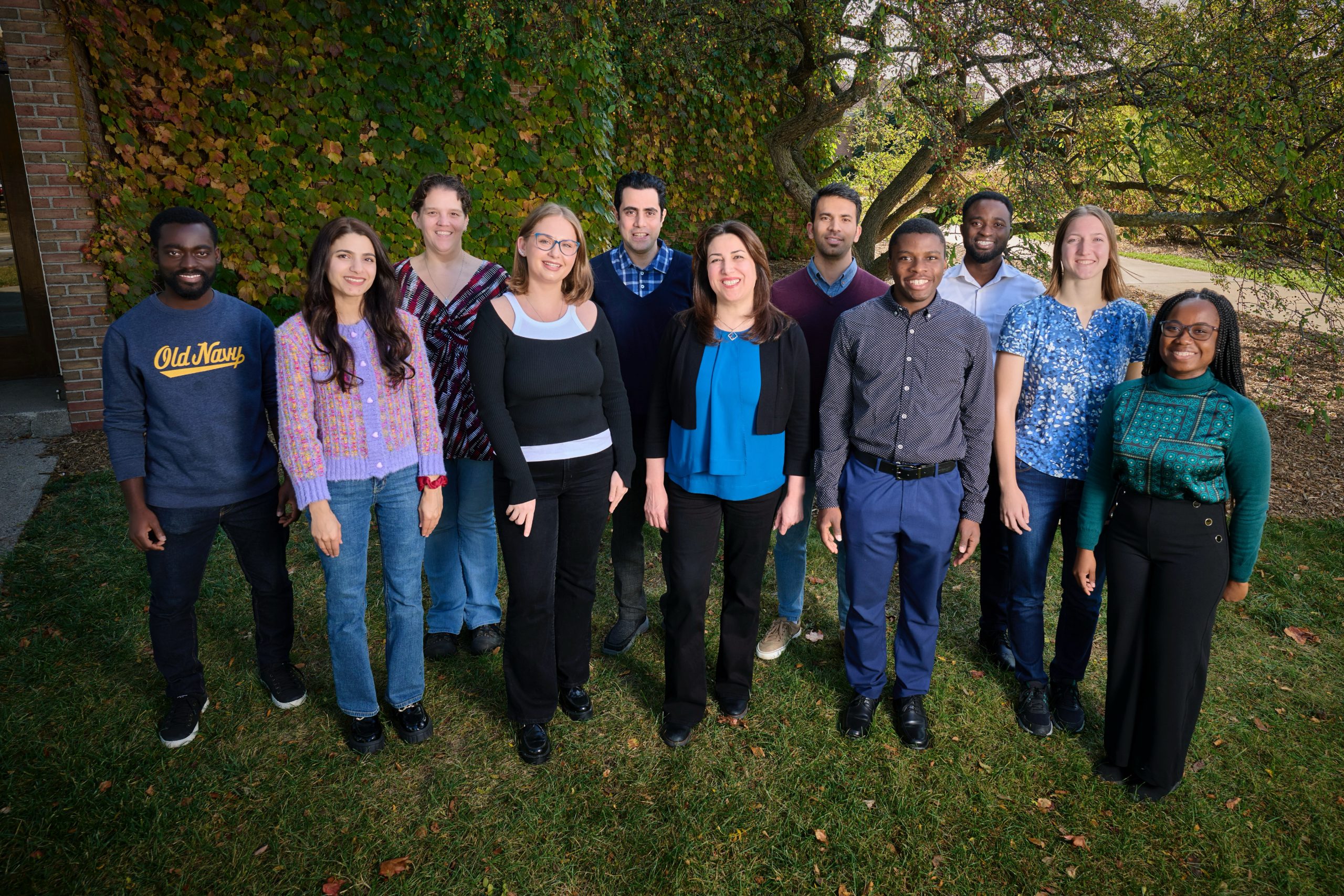
A quiet revolution is taking place in bustling laboratories. Dr. Mojgan Nejad, an Associate Professor at MSU with a joint appointment in the Department of Forestry and Department of Chemical Engineering and Material Sciences, is leading a team that’s turning what was once considered waste into a valuable resource that could transform multiple industries.
The hero of this story? Lignin – a complex organic polymer found in the cell walls of many plants that form key structural materials in their support tissues, allowing plants to grow tall and strong. “Lignin is the second most abundant natural polymer on Earth, after cellulose,” explains Dr. Nejad. “It comprises almost one-third of a plant’s dry mass and provides structural support, impermeability, and resistance against microbial attack and oxidative stress.”

For years, lignin has been seen as little more than a waste product, often burned as low-value fuel in paper mills and biorefineries. But Dr. Nejad and her team are changing that perception, unveiling its potential beyond fuel applications one step at a time. Her group has made significant strides in this area, resulting in numerous patents and collaborative partnerships with industry giants such as AGC Vinythai and allnex, further accelerating these developments.
Lignin’s properties make it suitable for various applications, including as a biofuel, biodegradable plastic, eco-friendly packaging material, or even as an additive to concrete to improve strength and reduce environmental impact. Its inherent properties, such as antibacterial and microbial resistance, fire retardant, and antioxidant properties, add to its versatility.
“Lignin has potential for so many applications,” says Dr. Nejad. “We’re replacing polyol, phenol, and bisphenol A with technical lignins in polyurethane, phenolic, and epoxy resin formulations, which are used to make biobased adhesives, coatings, foams, and composites.”
One of the most promising applications is bio-based resins and coatings, which could positively impact numerous industries. The benefits of bio-based epoxy resins and coatings are manifold, including being safer for the environment and human health. Current bio-based options often face limitations due to their performance and cost.
 “Many researchers have previously focused on using vegetable oils, tannins, and fractionated lignins. However, the wide availability of lignin makes the use of unfractionated technical lignin more interesting for many scientists and industries,” explains Dr. Nejad.
“Many researchers have previously focused on using vegetable oils, tannins, and fractionated lignins. However, the wide availability of lignin makes the use of unfractionated technical lignin more interesting for many scientists and industries,” explains Dr. Nejad.
Dr. Nejad’s team is pioneering the use of unmodified, commercially available lignins to replace bisphenol A (BPA) in epoxy resin formulations. “BPA is known to be an endocrine disruptor and is banned in baby bottles and canned baby foods,” Dr. Nejad says. By developing a lignin-based epoxy resin, Dr. Nejad hopes to eliminate the use of BPA and create more sustainable and safer coatings, which could have far-reaching implications for industries ranging from automotive and aerospace to packaging and construction.
The secret to utilizing lignin as a safe, natural replacement for BPA is due to the inherent phenolic structure of lignin. “If you look at BPA, it’s a compound that contains two phenolic hydroxyl groups,” explains Dr. Nejad. “And if you compare that to the structure of lignin, you will see that lignin inherently has several phenolic hydroxyl groups. We don’t need to modify lignin to replace BPA; those structures exist naturally in lignin.”
One key to unlocking lignin as a source for bio-based coatings is choosing the right source. The properties of lignin can vary depending on the plant from which it is derived and the process used to isolate it from other biomass components.
“The structure of lignin significantly varies based on the biomass source. The structure is different, whether it comes from softwoods, hardwoods, or agricultural residue,” says Dr. Nejad. “It’s not only that, but the process used to isolate lignin from the plant also affects its properties. We currently have over 80 different lignin samples from all over the world. We have characterized them by measuring their chemical, physical, and thermal properties, and based on these measured properties, we can predict which lignin is good for what application.”
The potential of this technology has not gone unnoticed. AGC Vinythai, a company producing biobased epichlorohydrin, and allnex, a global leader in industrial resins, have partnered with MSU to develop and scale up the production of lignin-based epoxy resins.
Mr. Masayoshi Namba, Business Director at AGC Vinythai, said, “Innovation and sustainability are key values for AGC Vinythai, and EPINITY® is a leading example in our product portfolio. By working with partners, we are continuously improving the sustainability of our products.”
Creating a Research Partnership
Business Connect, MSU’s corporate engagement office and part of MSU’s Innovation Center plays a crucial role in fostering these types of collaborations between academia and industry. The benefits of such collaborations include accelerated innovation, enhanced problem-solving capabilities, and increased potential for commercial applications. Over the years, Business Connect has facilitated numerous collaborations between industry and Dr. Nejad. Industry partners like AGC Vinythai, allnex and others contribute significantly to research like that of Dr. Nejad and her team, bringing valuable insights and resources to the table.

“This was an especially complex negotiation,” says Jeff Myers, Director of Corporate Partnerships for Business Connect. “It involved three organizations and several pieces of intellectual property. Our office worked closely with Tom Herlache at MSU Technologies to successfully negotiate the agreements to help move this partnership forward.”
“Engaging with industry partners is an important part of the innovation process and can contribute crucial aspects to accelerating research,” says Myers. “This includes resources such as funding and raw materials while also providing direct feedback on the results and tests needed to determine how the process can be changed or adapted for industry needs to ensure the technology is effective and economically viable.”
“Research partnerships such as this are likely to result in meaningful commercial outcomes benefitting the partners,” says Tom Herlache, Senior Technology Manager at MSU Technologies. “In this particular case, much more sustainable ’green’ industrial and consumer products could be the ultimate outcome,” Herlache adds.
“Other groups end up adding so many steps, chemicals, and costs to fractionate lignin that, in the end, the biobased coating is not economically feasible. Or when they attempt to develop a bio-based BPA replacement that ends up with no reduction in toxicity because now they’re making similar molecules to those toxic petrochemicals,” says Dr. Nejad.
 However, Dr. Nejad’s team has unique expertise in using unmodified lignin to meet industry needs. She believes that by working closely with industry partners, her team will be able to develop processes to utilize lignin in bio-based coatings that are scalable and economically viable—using industrially relevant reaction times, temperatures, and catalysts to make resins and coatings that incorporate a sustainable, abundant resource.
However, Dr. Nejad’s team has unique expertise in using unmodified lignin to meet industry needs. She believes that by working closely with industry partners, her team will be able to develop processes to utilize lignin in bio-based coatings that are scalable and economically viable—using industrially relevant reaction times, temperatures, and catalysts to make resins and coatings that incorporate a sustainable, abundant resource.
Florian Lunzer, Director of Strategic Research at allnex, said, “As a leader of industrial coating resins, allnex focuses on innovative chemistry to meet the needs of our customers and advance sustainability. We are pleased to collaborate with MSU and AGC Vinythai to bring lower carbon footprint and Bisphenol A-free epoxy solutions to the markets we serve.”
Dr. Nejad’s current project with industry partners AGC Vinythai and allnex, set to run until October 2026, represents a significant step towards 100% bio-based coatings. It’s a testament to the power of collaboration between academia and industry, bringing together MSU’s research expertise with the industrial know-how of AGC Vinythai and allnex.
“We are thrilled to share this exciting collaboration,” says Dr. Nejad. “By completely replacing Bisphenol A with technical lignins and using bio-based epichlorohydrin from AGC Vinythai, we’re paving the way for greener, more sustainable coatings.”
As the world grapples with the need for more sustainable materials, Dr. Nejad’s work offers a glimpse of a greener future. From the cars we drive to the packaging that wraps our food, lignin-based materials could soon be a part of our everyday lives, turning a widely available, underutilized material into high-value products.
As the project progresses, Dr. Nejad and her team continue to unlock the potential of lignin, creating new materials and helping to craft a more sustainable future for us all.
The importance of lignin’s versatility in various industries as a sustainable alternative cannot be overstated. As the world grapples with environmental challenges, these solutions promise a more sustainable future.
“This is the main motivation for my work,” Dr. Nejad concludes. “Seeing our inventions make a real-world impact. It’s an amazing experience to be so close to seeing our technology used in the next generation of sustainable vehicles or safer earth-friendly food packaging.”
This story originally appeared in the 2024 MSU Innovation Center Annual Report — a showcase of groundbreaking ideas, powerful partnerships, and the Spartan spirit of innovation.
The stories highlighted in this report are a testament to the innovators, researchers, and partners who make it all possible. Together, we’re creating a future where ideas move from concept to reality — benefiting Michigan and beyond.
Read the full report HERE.
The MSU Innovation Center is seeking companies and organizations interested in bio-based materials, sustainable coatings, and renewable chemical solutions.
Whether you’re exploring sponsored research, licensing opportunities, or co-developing lignin-based resins, BPA-free epoxy formulations, or biodegradable polymer innovations, we’re ready to collaborate.
Interested in partnering with MSU faculty on biomaterials research and next-generation sustainable chemical technologies?
